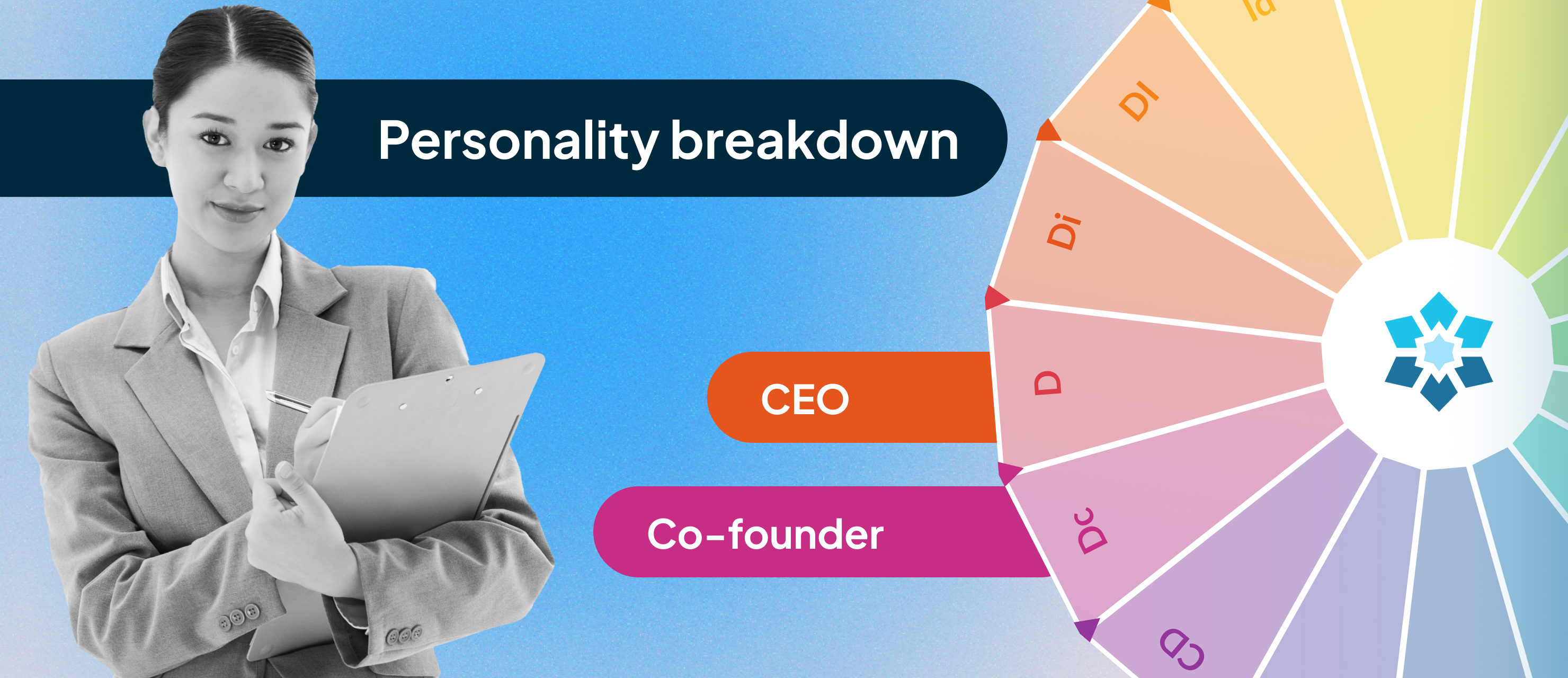
In today’s modern market, sales calls are far more complex than a simple, generic spiel. With so many competing products and services, buyers are often overwhelmed with hundreds of other options and messages from other salespeople. While an approach may have historically performed well, it may not always be suitable given each unique buyer’s preferences, motivations, and needs.
In order to grab their attention, sales reps must take special care before a sales call to ensure that they understand the buyer and their messaging resonates with their unique needs. Steering away from generic sales tactics and opting for a more personalized and intentional approach can significantly increase your ability to connect and build trust with buyers during initial sales calls. To do so, salespeople must prioritize adequate preparation before sales calls– which is where an adaptive selling platform, like Crystal, can greatly help.
What is adaptive selling?
Adaptive selling is the concept of adapting the way sales teams interact with a lead based on their unique personality and behavioral characteristics. Rather than a generic, one-size-fits-all approach, adaptive selling enables B2B sellers to adjust their sales strategy to better suit the person they are selling to.
For example, an assertive, direct salesperson might need to adjust the way they communicate with a buyer who is more soft-spoken and risk-averse. Rather than jumping into the sale, the seller should focus on building a rapport first to establish trust. When pitching their product, they might need to provide more details and give the buyer more time before making their decision, rather than pushing them towards a quick sale. This behavior-based approach helps sales reps tailor their message and selling process to meet each buyer's needs and preferences, taking personalization to the next level.
An adaptive selling approach can significantly improve a seller’s performance and ability to connect with buyers. This approach is meant to evolve depending on the sales situation and with different buyers– as no two people are exactly alike. Being mindful of how individuals are motivated, their behavioral tendencies and their buying process can be especially impactful when navigating the sales stages.
Other sales approaches: fluid & rigid selling
When analyzing how sales organizations typically operate, most organizations tend to utilize either a rigid or fluid selling approach. While each has its own benefits, neither is sustainable long-term. An adaptive selling approach is key to a consistent, sustainable, and effective sales process.
A fluid sales approach
Industries with more complex sales operations, such as tech or medical organizations, tend to utilize a fluid selling approach when trying to diversify their messaging and sales processes. While this approach allows for greater flexibility and reach, it tends to result in uncertainty and added pressure as reps fail to meet the standards set by higher-performing reps. By utilizing tools that help with adaptive selling techniques, any seller can adjust their approach to meet the needs of any buyer and become a higher-performing rep.
|
Fluid Sales Organization |
Adaptive Sales Organization |
|
|
Average Rep Performance |
Very dependent on natural talent, resulting in a huge performance gap between top reps and average reps |
Managers have a scalable system to help any rep communicate more like a highly skilled top rep. |
|
Ramp-up Time |
Most new reps struggle to replicate the success of their top peers and invent their own techniques from scratch. |
New reps adopt tried-and-true techniques and best practices, vastly accelerating their ramp-up period. |
|
Consistency of Messaging |
Managers and reps develop their own techniques and messaging, further driving inconsistent performance. |
Reps can be flexible to adjust their messaging for different buyers in a teachable, predictable method. |
|
Buyer Experience |
Buyers experience an entirely different sales process, depending on their sales rep. |
Sellers can personalize the buying experience to customer needs without reinventing it during every deal. |
A rigid sales approach
Organizations operating within more simple sales models, such as those in traditional telemarketing or advertising industries, and utilizing this approach tend to be more concerned about quantity than quality. To play this numbers game, sales reps are usually incentivized to maximize quantity rather than quality. Doing so results in a higher volume of activity but a low conversion rate. By opting for an adaptive selling approach, sellers can more effectively reach and resonate with qualified buyers. While they might not see quantity up front, in the long term they will likely experience higher conversion rates and provide a better buying experience.
|
Rigid Sales Organizations |
Adaptive Sales Organizations |
|
|
Communication Skills |
Reps depend on static/generic scripts, which makes it difficult to adjust their pitch for different circumstances. |
Reps are flexible, nimble, and able to adjust their pitch quickly based on new information. |
|
Client Relationships |
Reps are forced to think transactionally, so they focus on the short-term “numbers game. |
Reps are encouraged to think relationally, so they focus on building long-term trust and alignment. |
|
Autonomy & Effectiveness |
Reps depend heavily on intervention from managers to review emails, overcome objections, and close deals. |
Reps are equipped with skills to successfully navigate the sales process with less dependence on their manager. |
|
Buyer Experience |
Buyers are forced into a fixed, one size-fits-all process that may or may not meet their needs and desires. |
Buyers get a more personalized experience, tailored specifically to their unique needs and style. |
Adaptive selling not only enhances the buyer experience– it also improves the seller experience by encouraging sales teams to learn new communication skills that can be used throughout their career. By discovering how an adaptive salesperson should spend their time and implementing those practices into their process, reps can experience many benefits.
How does it improve the sales process?
Although there are many techniques and strategies that can improve a sales organization, to break through the noise salespeople must be able to adapt each interaction with buyers to align with how they naturally behave, communicate, and make decisions. Personalization is the key to getting better sales efficiency, improved communication, and more opportunities. Here are some of the other benefits of adaptive selling:
- Improved conversion & win rates
- Consistent buyer experience
- Maximized time and effort
- More effective coaching
- Accelerated communication skills
How an adaptive salesperson prepares for a sales call
Sufficient preparation is essential ahead of any sales call. By taking the time to adequately familiarize themselves with the customer, sales reps are more likely to connect and resonate with them.
Step 1: Identify the personality of your buyer
To understand how to best communicate, sales reps must first identify their buyer’s personality. While this can be done based on previous interactions or personality tests, these methods are unrealistic when no initial meeting has taken place. Crystal’s adaptive selling platform includes a chrome extension that allows salespeople to identify and understand the personalities of prospects without having ever met them prior. The chrome extension analyzes online data points available via mediums such as Linkedin to accurately predict personality and provide valuable personality insights.
Step 2: Understand what part of the sales cycle you’re in
After identifying their personality, sales reps must understand which stage of the sales cycle they are currently in. Are they a serious buyer? Are they just browsing? Have they already familiarized themselves with your solution, or is this the first time they’ve heard of it? Do they have the authority to make these decisions or to champion this sale? Asking these questions prior to a sales call ensures that the rep is aligned with the buyer and their buying journey.
Step 3: Discover how your buyer prefers to communicate
Once a salesperson understands the personality of their buyer and where they are in the sales cycle, they must learn how to best communicate in a way that resonates and adds value. Each individual buyer will have their own communication styles and preferences– by understanding their personality, reps can more effectively reach them. For example, a DISC I-type buyer will appreciate casual and friendly conversation, whereas a C-type buyer will prefer to keep things formal and strictly business. Understanding these differences is critical to keep the momentum.
Step 4: Understand your buyer’s needs and motivations
Understanding a buyer’s needs and motivations can help reps best personalize their pitch. Each buyer has different pain to be addressed, and each unique personality type is motivated by different factors. For example, a DISC S type buyer will value product reliability and security, whereas a DISC D type will be motivated more by the competitive edge your product offers. Personalizing a pitch based on these motivations allows reps to more effectively highlight their solution’s value.
Step 5: Refine your approach
No two buyers are exactly alike, and sales situations can change from one to the next. Therefore, an adaptive sales approach must evolve and refine with each new prospect. Being aware of these differences and allowing flexibility in a sales approach is key in adaptive sales. With each new buyer, a sales rep can expect to tweak their communication, pitch, and strategy.
Step 6: Conduct sales call with more confidence
Rather than flying blind, adaptive sales reps are well-equipped to communicate effectively, pitch their product, handle negotiations, and more. Tools like Crystal streamline this process by providing reps with the insights, coaching, and tips needed to effectively prepare for and handle a sales call with any type of buyer.
Final thoughts
There are many voices to compete with and more noise to break through than ever, so buyers can afford to be very selective with their attention. To avoid getting lost in the mix, salespeople must be intentional when speaking to and meeting with buyers. Practicing adaptive selling techniques when preparing for a sales call is key to grabbing a prospect’s attention and driving them to an action that moves them further down in the sales funnel.
While the vast majority of sales organizations choose a high-volume, low-touch strategy, this has created a massive opportunity for those who take the opposite approach; one focused on quality conversations, building trust, and professional empathy. Reps employing an adaptive selling approach when preparing for sales calls and beyond can truly differentiate the buying experience by making their pitch and approach more personal, authentic, and relevant than their competition.
Learn more about how Crystal, the adaptive selling platform, can up-level your current sales approach:








